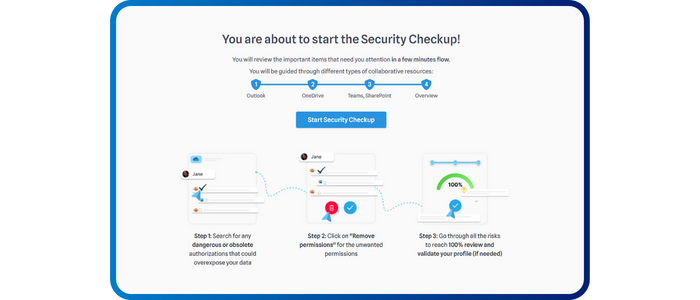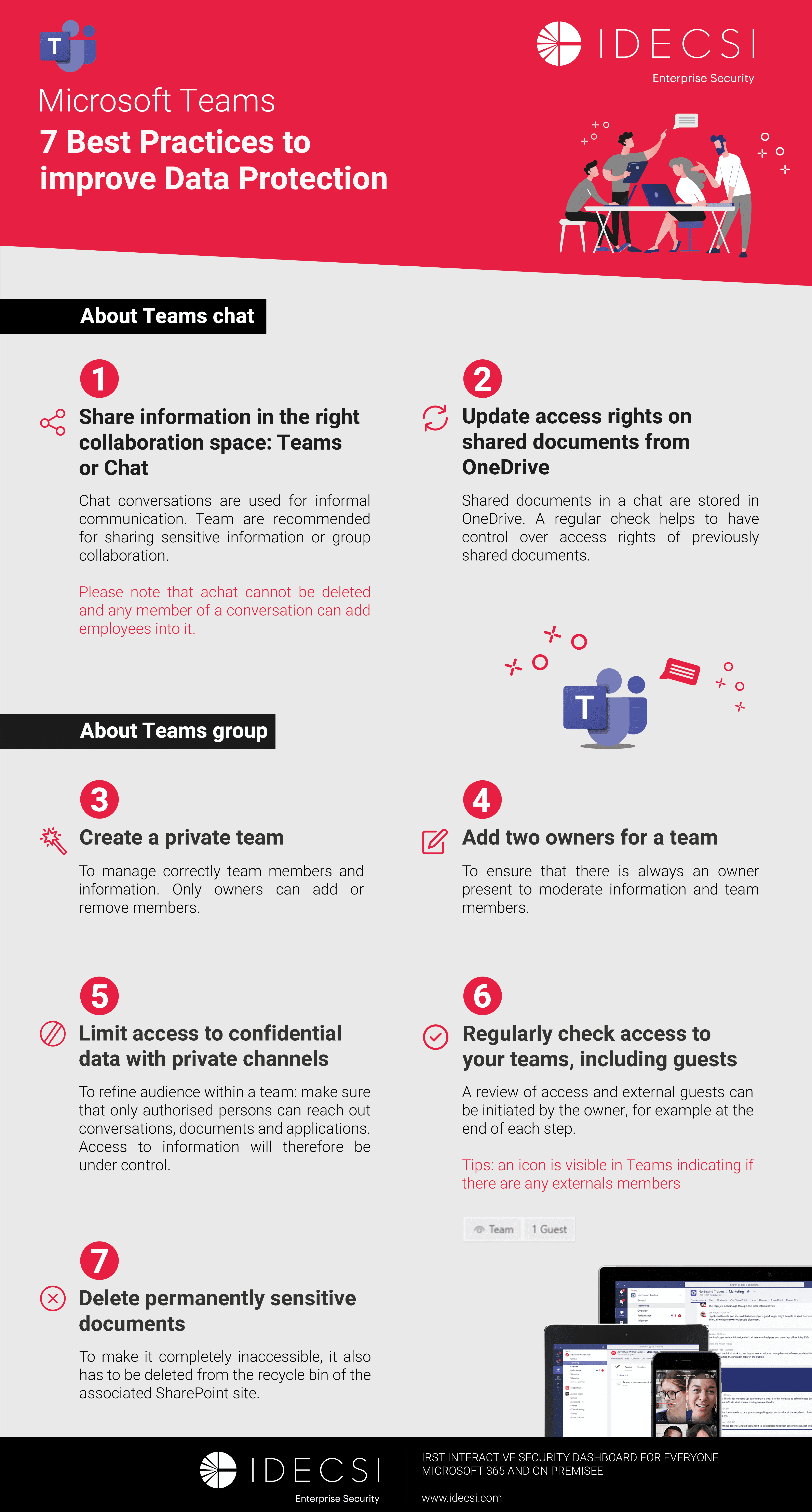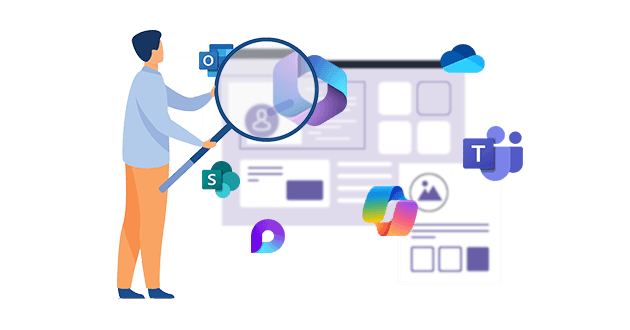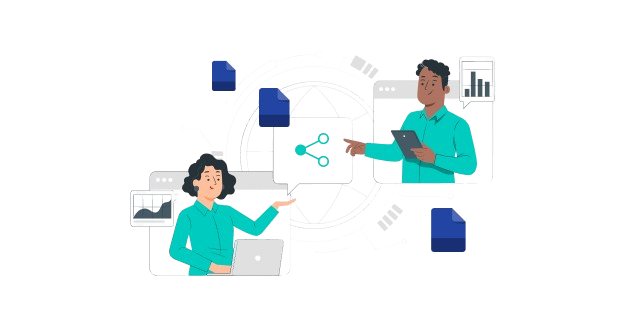
Security CheckUp: Simplifying risk review in M365
Lire l'article[NEW] MYDATAMANAGEMENT TO CLEAN UP YOUR OBSOLETE, UNUSED AND VOLUMINOUS DATA
Solutions
Effective response to six major challenges in data security
#1 user-interacting platform for detection
Discover the platform
Best practices to improve Microsoft Teams security
Download the infographicOur resources
Check out our useful resources for improving data protection
Microsoft 365
14 February 2025

A recent study conducted by IDECSI and IFOP highlights the growing importance of digital sobriety in business. 85% of employees consider this approach essential for the company, and 81% see it as a priority for their organisation. Awareness is real, but obstacles remain.
On the program:
Data management is a real challenge for employees: 74% admit that they are unable to estimate the volume of their professional files. On average, employees have about 87 GB of data, of which 36% is considered useless or obsolete. This excess data amounts to up to 30 GB per employee, leading to additional storage costs and a significant energy footprint. This finding reveals an excessive accumulation of unsorted files, symptomatic of a lack of good practices in digital data management.
Despite growing awareness, employees struggle to adopt regular file sorting habits. Nearly 49% of employees admit that they rarely sort their data, while 12% never do so. The reasons given are varied: lack of time (52%), the complexity of the task (25%), and the absence of clear instructions from employers (24%). This situation highlights a gap in internal support policies and the need to raise greater awareness among teams about the importance of regular data sorting.
To overcome these obstacles, 82% of employees express the need for automated and intuitive tools to facilitate the cleaning of their digital files. Solutions that simplify the sorting and deletion of unnecessary data would be seen as effective levers for encouraging digital sobriety practices. Automation could thus allow employees to better manage their files, while reducing the carbon footprint of storage infrastructures.
Despite the obstacles identified, employees are ready to integrate sustainable practices into their daily lives. 85% of respondents say they are willing to adopt a regular routine to manage their data, including 26% who say they are "very willing" to actively engage. Additionally, 90% recognise the importance of regularity in cleaning their files to ensure effective digital sobriety. This desire for commitment is comparable to employees' expectations in terms of data security, highlighting a growing interest in responsible and sustainable practices in business.
According to Daniel Benabou, co-founder and CEO of IDECSI, digital sobriety is no longer an option, but a strategic necessity. The study shows that the real challenge lies in supporting employees with simple and effective tools that facilitate data management. By empowering employees to sort and clean their files, companies can turn digital sobriety into a lasting performance asset and a shared trust factor within teams.
“MyDataManagement allows us to strengthen and encourage responsible digital practices. Every user can now clean their data with ease."

Recent articles
Subscribe to our newsletter and receive new contents every month
Our articles
These articles may
interest you

